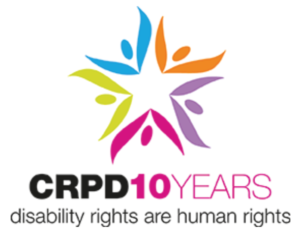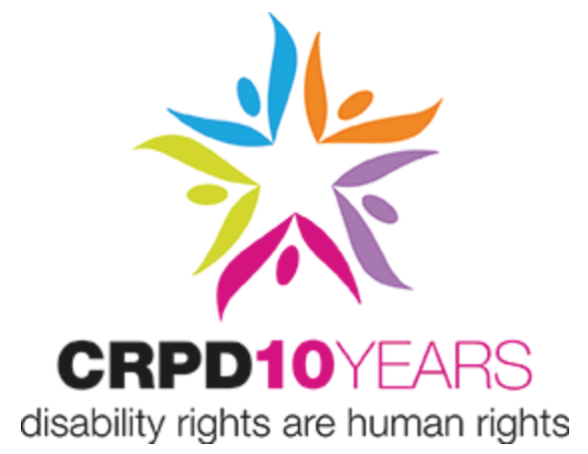 The CRPD celebrates 10 years
The CRPD celebrates 10 years
In unison with the United Nations and the global disability community, Dementia Alliance International commemorates and celebrates the 10th anniversary of the Convention on the Rights of Persons with Disabilities (CRPD), as we have been advocating globally for full and equal access for people with dementia to this Convention for almost two years, and many individuals living with dementia have been advocating for these rights since the it was formally adopted.
On 13 December 2006, the United Nations General Assembly adopted a resolution that established the Convention on the Rights of Persons with Disabilities (CRPD). It’s aim is to “protect and ensure the full and equal enjoyment of all human rights and fundamental freedoms by all persons with disabilities, and to promote respect for their inherent dignity.”
The main message is that persons with disabilities are entitled to the full spectrum of human rights and fundamental freedoms without discrimination. To that end, the Convention promotes the full participation of persons with disabilities in all spheres of life, challenging customs, stereotypes, prejudices, harmful practices and stigma relating to persons with disabilities.
DAI also challenges customs, stereotypes, stigma, prejudices, harmful practices and discrimination, and are advocating for exactly the same rights as all others living with any form os disability.
The UN Committee on the Rights of Persons with Disabilities monitors how countries that have ratified the Convention are doing by reviewing them regularly and issuing concrete recommendations on how violations can be tackled and rights upheld.
DAI intends to monitor countries to ensure people with dementia are afforded the same access to the CRPD as all others with disabilities. Whilst 167 countries have ratified the CRPD, no country has yet acted on it for those of us diagnosed with dementia, and in close but autonomous partnership with Alzheimer's Disease International, we sincerely hope we can impact tangible change.
Why is the CRPD so critical?
The CRPD is the first human rights treaty ratified in the 21st century, with the highest number of signatories in history to a UN Convention on its opening day. Most notably, it is also the first internationally legally binding instrument to specifically address the situation of persons with disabilities at a global level in an effort to promote, respect and fulfil their rights.
Since its adoption at the General Assembly in December 2006, the Convention, through its articles, has raised awareness about disability as both a human and a development issue. It marks a paradigm shift, where persons with disabilities are no longer viewed as objects of charity but as active members of society, in charge of their own lives, with free and informed consent. The CRPD is the chief instrument that consolidates the efforts made by the United Nations to promote the equal rights and inclusion of persons with disabilities in all spheres of society.
If you are diagnosed with dementia, or know someone who is diagnosed with dementia, it is free and very easy to join DAI. We have educational webinars, online support groups, peer to peer support, and many other services and resources to support you.
